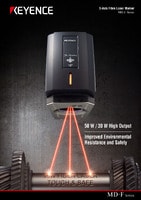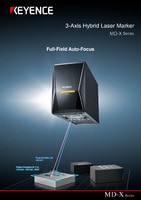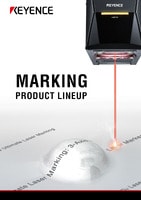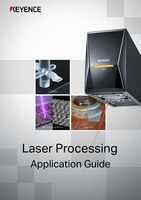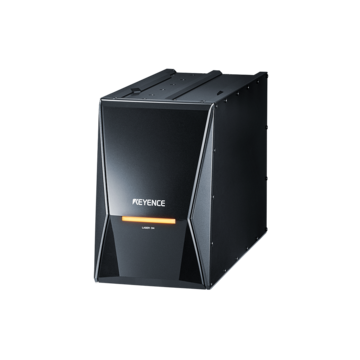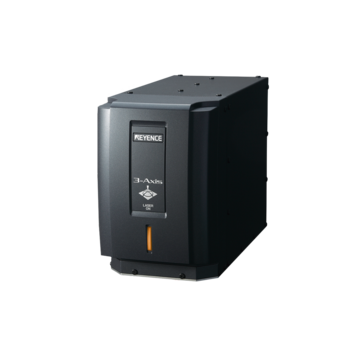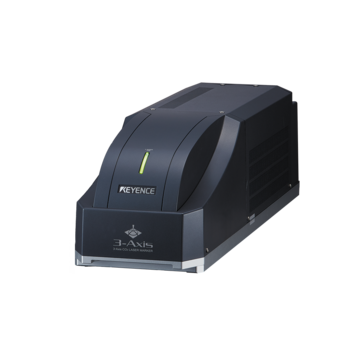Industrial Laser Marking Systems / Laser Markers
Difference Between 20 W, 30 W, 50 W, 75 W, and 100 W Laser Marking Machines?
-
Tags:
- Laser Engraving , Laser Cleaning , Laser Marking
Whether you use various tools in manufacturing or during your household chores, each has its specifications that help you get the job done. When you visit the hardware or big box stores, these tools are also categorised. These categories can signify power, size, and material compatibility. For example, there are chainsaws with different powers for metal versus wood.
Fibre laser marking machines are similar. One category that determines use is the laser marking machine’s wattage. Typical fibre wattage includes a 20 watt fibre laser, 30 watt fibre laser, 50 watt fibre laser, 75 watt fibre laser, and 100 watt fibre laser.
The range of wattage affects the efficiency, speed, depth, and type of processing. Put simply, when the laser marking machine wattage increases, the laser beam power, speed, and cost increase, too. However, simply regarding the wattage as more powerful does not mean higher wattages are always the best fit. Choosing the right laser power for your project requires taking into account the benefits and drawbacks of each wattage.
In this blog, we’ll explore the typical options in the 20 W - 100 W fibre laser marker wattage range. We’ll look at the processes, materials, and production sizes they specialise in so you can choose the best fit for your needs.
One thing to note is that the following comparison of laser wattages is only accurate for lasers using the same medium. For example, you would not want to compare a UV and fibre laser based on wattage since they are developed from different mediums. Due to things like wavelength differences, a 3 W UV could mark certain materials faster than a 50 W fibre.
Importance of Choosing the Right Power
Choosing the right laser marking machine power is necessary for getting the best results for your materials, budget, and batch size. It also maintains the longevity of your laser marking machine and ensures that your materials are processed appropriately.
Wattages 50 W and above are too powerful for certain projects. These powerful beams could damage your material or machine or produce lower-quality results. Alternatively, if a 30 W or 20 W fibre laser is not up to the task, the project will be time-consuming.
Discover more about this product.
Click here to book your demo.

Power Options Available
Generic fibre laser marking machines typically offer 20 W, 30 W, 50 W, 75 W, and 100 W as power options. In this section, we’ll discuss the characteristics of each wattage, compatible materials, and comparisons. As a general rule of thumb, deeper marks are more compatible with higher power.
20 Watt Fibre Laser
A 20 W fibre laser marking machine is ideal for marking within reasonable cycle times. This 20 W fibre laser is better suited for marking or ink stripping rather than deep engraving or cutting.
Although the 20 W fibre is not ideal for deep engraving, it is still more than capable of marking the vast majority of manufacturers' tracking and traceability needs.
It is not strong enough to quickly deep engrave on hardened materials. It can still reach most depths needed, but it’s typically only in consideration if the cycle time is not a concern. The 20 watt fibre laser is an affordable and lower-maintenance option.
30 Watt Fibre Laser
A 30 W fibre laser is one step above a 20 W fibre laser. As numbers go, the 30 W has a higher average value, meaning it is more powerful. This wattage isn’t a significant difference in function, but it is faster than the 20 W.
The 30 W fibre laser can also achieve the marking needs of almost all manufacturers but will still not be ideal for engraving deeply in fast cycle times. As wattage increases, something to be wary of is the heat effect that the laser has on products. If marking looks good with a 20 W laser, and fits within the required cycle time, increasing the wattage could negatively affect the mark by over burning the part or area.
50 Watt Fibre Laser
A 50 W fibre laser is the threshold where the power level begins to make a functional difference compared to 20 W and 30 W.
The 50 W graduates to cutting and deep engraving on hard metals such as brass or hardened steel. The 50 W is powerful enough to deep engrave quickly or mark within exceptionally fast cycle times. This makes it a better option in those areas than the 20 W or 30 W. However, it makes it a worse option for precise marking or marking on heat-sensitive metals, plastics, or thin metals as it produces much more heat. This additional heat can lead to unwanted part damage and potentially hurt the structural integrity of the part.
75 Watt Fibre Laser
75 W fibre lasers are even more powerful than a 50 W laser. This wattage is less precise than lower wattages, but it is a quick method for thick materials. A 75 W fibre laser marking machine especially excels at cutting.
100 Watt Fibre Laser
A 100 W fibre laser is the most expensive, fastest, and most powerful fibre laser of these categories. It’s used for thick metals that require cutting or deep engraving. When it comes to marking for tracking or traceability, the additional wattage of the 100 W fibre laser may actually be counterproductive. If marking needs can be met with a 20 W or 30 W, then the additional wattage will not only add unneeded cost but can also generate unwanted damage. Additionally, the higher the wattage gets, typically the less precise the marks get, meaning the additional wattage isn't usually necessary for most applications.
We’re here to provide you with more details.
Reach out today!

Explore KEYENCE Range of Laser Marking Machines
KEYENCE offers five types of laser marker machines: UV, green, hybrid, fibre, and CO2. Fibre and hybrid laser marking machines both use a fibre oscillator. Both lasers include 3-axis control for maneuvering over an XYZ axis.
Fibre Laser
KEYENCE’s fibre laser is the 3-Axis Fibre Laser MD-F Series. This laser is versatile for many uses because of its compact design, IP64 head, and 3-axis capability. This fibre laser excels at engraving, annealing, and cutting metals like steel, iron, aluminium, and rubber.
Hybrid Laser
KEYENCE’s hybrid laser marking is the 3-Axis Hybrid Laser MD-X Series. The MD-X is a combination of the YVO4 and fibre laser, which makes for the longest service life on the market while maintaining high output power. This combination also allows for the ability to mark a wide range of materials, like resin, PBT, stainless steel, iron, aluminium, and rubber.
Curious about our pricing?
Click here to find out more.
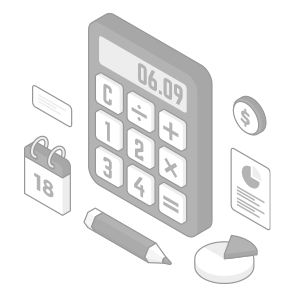
Choose Your Laser Today
As you see, picking the right wattage for your application is a decision based on your budget, precision, materials, and processing needs.
A 20 W fibre laser and a 30 W fibre laser are affordable and precise for marking most metals and resin. However, these wattages aren’t as fast as higher powers. A 50 W, 75 W, and 100 W fibre laser are high-powered choices for metals that need deep engraving or cutting. These wattages are less precise and less affordable but may still be cost-effective for large projects.
At KEYENCE, we understand that one wattage choice isn’t always the answer. Contact us to discuss your laser marking needs—we are here to help.
We’re here to provide you with more details.
Reach out today!


